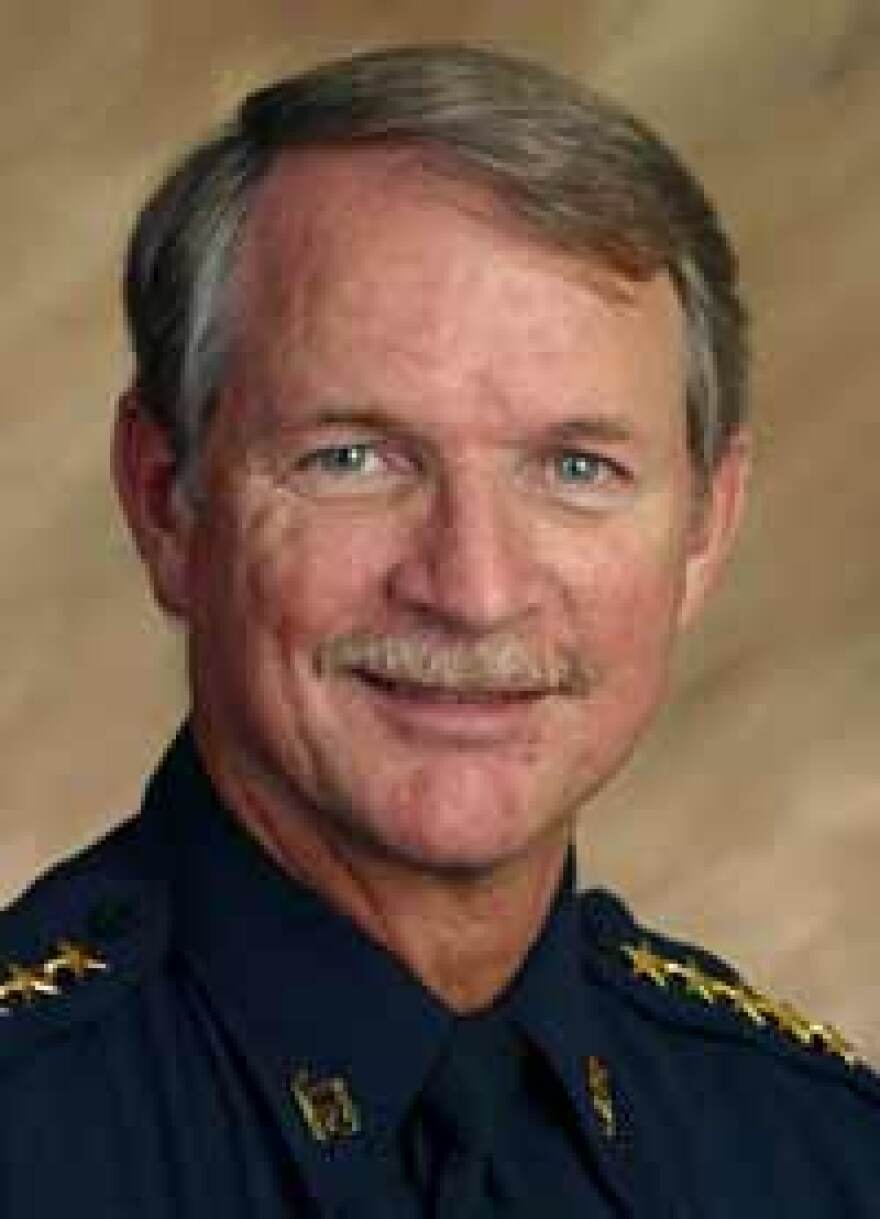UPDATE: In a statement sent Thursday morning, Governor Rick Scott's office says, "Governor Scott looks forward to signing the legislation."
Bills aimed at keeping sexual predators away from children are headed toward Florida Gov. Rick Scott’s desk after unanimously passing the House today. Law enforcement officers helped craft the laws they say should keep prior offenders from falling through the cracks to prey on kids again.
Last summer, the city of Jacksonville was in mourning after the abduction, assault and murder of 8-year-old Cherish Perrywinkle. Florida Public Radio’s Karen Feagans was at the girl’s memorial service and described the scene:
“As the prayer service moved outside, three of Cherish’s Sunday-school friends led those gathered in song as the young girl’s family: her mother, stepfather and two sisters sat nearby wearing shirts with a giant photograph of Cherish on the front,” Feagans said.
Donald Smith, the man convicted of killing Perrywinkle, was a registered sex offender. Coincidently, Duval County Sheriff John Rutherford says, on the same day Smith took the girl from a Wal-Mart, police officers had checked his house to verify he lived at his registered address.
“But because he was not under any kind of community supervision, we couldn’t go into his house. We couldn’t go in the house, we couldn’t look in his computer to see if he was doing something wrong, we couldn’t look in his house to see if he was contemplating doing something wrong,” Rutherford says. “And had we had the chance, maybe it wouldn’t have made any difference. But I sure would have loved to have the opportunity.”
That’s why he says one of his favorite changes this year’s bills make is requiring community monitoring of sex predators to be carried out after they are released from mental health facilities. Currently their community-monitoring clock starts ticking as soon as they leave prison and go to such a facility—meaning by the time they are released into society they can be free from unwarranted searches.
Another change Rutherford applauds is allowing offenders convicted of lesser crimes to be recommended for mental health treatment. He says Smith had served time for a misdemeanor even though he’d attempted to abduct another little girl.
“If you look at what he was convicted of, that’s one thing. But if you look at what he was originally charged with and the behavior that he was exhibiting in the attempted abduction, then you see that he rises to a much more serious level of concern,” he says.
If Gov. Scott signs the bills, state attorneys and law enforcement will be able to recommend offenders for mental health commitment based on the circumstances surrounding their crimes.
Rutherford says he also likes a new requirement ordering offenders to report which county they’re moving to when they leave prison. That county’s sheriff will immediately receive a notification. If the offender fails to check in within 48 hours, the sheriff can issue a warrant for his arrest.
Rutherford says it’s a great improvement over the current system: “When they tell DOC, ‘I’m going to go report to Duval County’ and then they don’t, well, we don’t even know they’re coming.”
Also included in the bills are 50-year prison sentences for raping the elderly, the disabled or children under age 12, as well as more reporting requirements about offenders’ whereabouts. And sex predators won’t be allowed to own or view pornographic material.
But some still criticize the bills for emphasizing punishment but not doing enough to prevent sex crimes in the first place.
“Well I ask you this question: Has it worked so far?” says Gail Colletta, who runs the Florida Action Network, a group advocating for what she calls evidence-based sex offender policies.
“We have more people in our prisons than ever before and our sentences are harsher than ever before,” Colletta says.
She says, as soon as they’re convicted, offenders should be evaluated for future risk to see who can be rehabilitated and who can’t.
“We are individuals. We need to be treated as such. We need to be managed as such. We need to be dealt with as individuals,” she says.
One of the bill’s sponsors, House Criminal Justice Committee Chair Matt Gaetz, addressed that criticism Wednesday during floor debate.
“People could argue about recidivism data until they were blue in the face, but we know one certain fact: no one has ever raped a child while sitting in a state prison,” Gaetz said.
If Scott signs the bills, it won’t be the first time since he’s taken office the state tightened controls on sex offenders: He also signed off on increased penalties for possessing child pornography and for not reporting child abuse.




